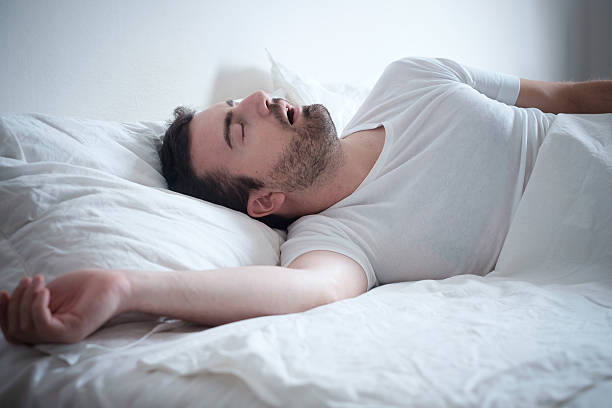Do you or your partner snore? It may be more serious than you think.
90 million Americans suffer from snoring during sleep. While snoring is frustrating for everyone involved, it’s also often a lot more. For more than half of snorers, snoring is one of the biggest warning signs of the dangerous sleep disorder, sleep apnea. As a result, ignoring snoring can be the difference between life and death. It’s time to fully understand what this snoring means and what you can do to silence it.
Sleep Apnea
Did you know that 1 in 5 adults suffer from sleep apnea and that they don’t even know it? It’s true. As a result, if you don’t even know what sleep apnea is, it is time to find out.
What is Sleep Apnea?
Sleep apnea is an extremely common and serious sleep disorder that causes a person’s breathing to get interrupted while they sleep. People with untreated sleep apnea stop breathing repeatedly during their sleep, sometimes hundreds of times in a single night. This means that their brain, along with the rest of their body, may not get enough oxygen.
Sleep apnea can make you wake up in the morning feeling tired or unrefreshed even though you have had a full night of sleep. During the day, you may feel fatigued, have difficulty concentrating or you may even unintentionally fall asleep. This is because your body is waking up numerous times throughout the night, even though you might not be conscious of each awakening.
The lack of oxygen your body receives can have negative long-term consequences for your health, including:
- High blood pressure
- Heart disease
- Stroke
- Pre-diabetes and diabetes
- Depression
This type of sleep disorder has become a significant health issue in the United States. In fact, it is estimated that 22 million Americans currently suffer from sleep apnea, with 80 percent of the cases of moderate and severe obstructive sleep apnea remaining undiagnosed. This is extremely alarming since untreated OSA (Obstructive Sleep Apnea), which represents the great preponderance of the cases, can lead to high blood pressure, chronic heart failure, atrial fibrillation, stroke, and other cardiovascular problems; is associated with type 2 diabetes and depression; and is a factor in many traffic accidents and accidents with heavy machinery.




